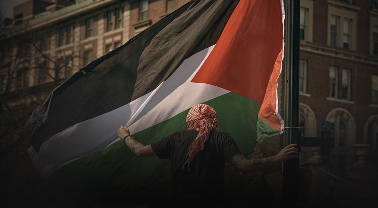Marc Lamont Hill discusses the latest move towards recognising Palestinian statehood with analyst Mouin Rabbani.

Click here to watch the Al Jazeera interview with Mouin Rabban.
On May 28th, Norway, Spain, and Ireland will officially recognise Palestine as an independent state, joining the more than 140 other countries that have already done so, in a move they hope will pressure Israel and its allies to find a solution to the war. However, the US and other major Western powers have long opposed unilateral recognition, arguing instead that a two-state solution should come after peace talks.
The announcements have been heavily criticised by Israel, claiming it was “rewarding terrorists”. Meanwhile, Hamas called this new recognition a “turning point”.
Will this mark a significant shift in the West’s position on the conflict? Or is it, as some critics have said, too little, too late?
This week on UpFront, Marc Lamont Hill speaks to Jadaliyya co-editor Mouin Rabbani.